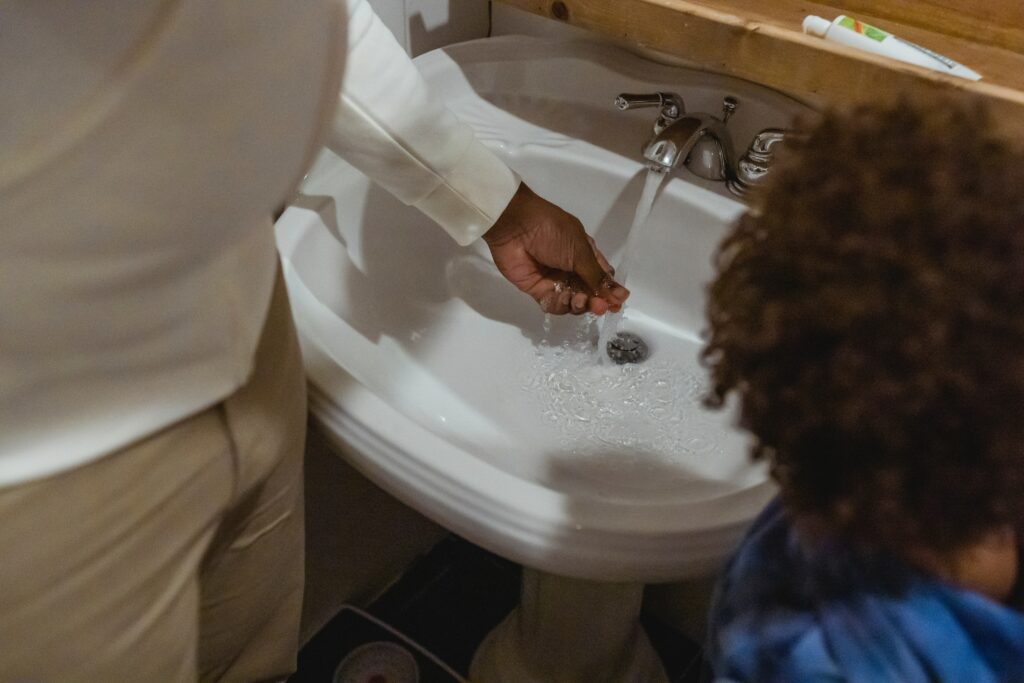
When your sink takes forever to drain, even the simplest task, like brushing your teeth or doing dishes (depending on whether your bathroom sink is affected or the one in the kitchen), can feel like a chore. While a slow-draining sink often seems easy to fix (it not always is), it’s important to understand the cause of it to find the right solution.
What Causes a Slow-Draining Sink?
Some of the most common reasons for slow-draining sinks include:
1. FOG Buildup
FOG is the professional term plumbers use for fat, oil, and grease, which are the leading culprits not just behind slow-draining sinks but also for causing clogged sink drains. Though it more commonly occurs in the kitchen sink due to all that leftover cooking fat people throw down the drain, it can also develop in the bathroom sink. Wondering where the fat comes from in the bathroom sink drain? From the soaps!
Soaps contain fat that can solidify in pipes, creating hardened deposits. Having said that, FOG buildup is a bigger concern for kitchen sinks and can also be prevented by not throwing any type of oil or grease down the drain.
2. Soap Scum, Food Particles, and Other Debris
Everything apart from the water that goes down your sink poses a risk of causing buildups and leading to slow drains. Unfortunately, this also includes soap scum, dust, and dirt, which are unavoidable. However, elements like food scrapes, human hair, and other debris can be prevented from entering your drain pipes with a little care.
Remove all the food particles from utensils before putting them into the kitchen sink. Install a hair catcher in bathroom sink drain (ideally on all bathroom drains), and clean your sink drains frequently to prevent buildups.
3. P-Trap Blockage
A P-trap is the part of your sink drainage where the pipe turns into a U shape. The purpose of it is to prevent sewer gases from entering your home through the sink drain. At times, debris that goes down your sink drain can collect in this area, restricting the flow of water, which then causes a slow-draining sink.
Many p-traps come with a clean-out plug, allowing you to clean it and fix smaller blockages. But if there seems to be a bigger issue, it’s best to call a professional plumber to sort it out.
4. Clogged Vent Pipes
Vent pipes are a key component of a plumbing system. They regulate the air pressure within the interconnected system of pipes to ensure smooth and unobstructed water flow. When they do not work properly, you could experience slow-draining sinks.
Some of the elements that can cause plumbing vents to lose their efficiency include snow, tree leaves, and debris.
Call a Professional Plumber to Fix Your Slow Draining Pipes
If you’re faced with a slow-draining sink, it’s best to leave the task of finding out the cause and fixing it to a professional plumber. DIYing the task may seem more affordable, but it can lead to greater damages, which would require more extensive and costly repairs. So, don’t take the risk and call a professional.
If you’re in Pittsburgh, PA, call W.J. McNabb Plumbing to fix your slow-draining sinks and all your plumbing installation and repair needs.
